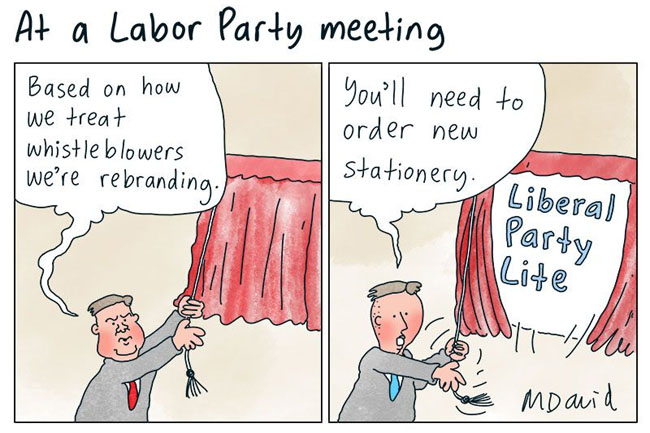As the acute phase of the pandemic draws to a close, a dynamic economy, with a strong private sector, will need an equally strong public infrastructure commitment, writes Professor John Quiggin.
OVER THE LAST few weeks, I’ve been looking at Zombie ideas in economics.
As I argued in Zombie Economics: How Dead Ideas Still Walk among Us, these are ideas that should have been killed by the evidence against them that has accumulated since the beginning of the 21st Century — and particularly the Global Financial Crisis (GFC). Yet, they have remained influential and have made the pandemic catastrophe even worse than it would inevitably have been.
In previous instalments, I’ve looked at the "great moderation", the "efficient markets hypothesis", the "dynamic stochastic general equilibrium" macroeconomic model and "trickle-down" economics. Together, these form the theoretical basis for market liberalism, or neoliberalism, the economic ideology that has been dominant since the 1970s.
In practical policy terms, the policy that epitomises market liberalism is privatisation — including the sale of government business enterprises, the contracting out of public services and the use of public-private "partnerships" to construct and operate public infrastructure, both physical and social.
Privatisation is a distinctively neoliberal policy because neoliberalism is a reaction against the expansion of the social democratic state that began in the late 19th Century and continued until the breakdown of the post-war economic order in the chaos of the 1970s. By reversing these developments, neoliberals hoped to return the economic system to the "classical liberalism" analysed and advocated by free-market economists like Adam Smith, David Ricardo and Frédéric Bastiat. (To be fair, none of these was as dogmatic as their latter-day fans).
Beginning with former UK Prime Minister Margaret Thatcher's Government in 1980s Britain, there was a concerted global attempt to reverse the growth of the public sector. The theoretical basis for privatisation rested on the efficient markets hypothesis, according to which private markets would always yield better investment decisions and more efficient operations than public-sector planners.
The political imperative derived from the "fiscal crisis of the state" that arose when the growing commitments of the welfare state ran into the end of the sustained economic growth on which it was premised. The crisis manifested itself in the "tax revolts" of the 1970s and 1980s, epitomised by California's Proposition 13, the ultimate source of the state's current crisis.
Even in its heyday, privatisation failed to deliver on its promises. Public enterprises were sold at prices that failed to recompense governments for the loss of their earnings. Rather than introducing a new era of competition, privatisation commonly replaced public monopolies with private monopolies, which have sought all kinds of regulatory arbitrage to maximise their profits. Australia's Macquarie Bank, which specialises in such monopoly assets and is known as the "millionaire's factory", has shown particular skill in jacking up prices and charges in ways not anticipated by governments undertaking privatisation.
Privatisation failed even more spectacularly in the 21st Century. A series of high-profile privatisations, including those of Air New Zealand and Railtrack in Britain, were reversed. Then, in the chaos of the GFC, giants like General Motors and American International Group (AIG) sought the protection of government ownership.
A particularly striking development was the rise and fall of public-private partnerships (PPPs), exemplified by the Private Finance Initiative (PFI) in the United Kingdom. The PFI went through a series of versions, with each promising to fix the failures of the last. It was finally abandoned by the conservative government of Theresa May in 2018. Australia’s PPP programs, modelled on the PFI, have lumbered on despite a long series of failures, but the scale and scope have steadily declined.
The pandemic has thrown into sharp relief the fact that, when the chips are down, it is the government – and not private enterprise – that keeps things going. A trend towards renationalisation, evident before the crisis, has accelerated, with Italy renationalising its main airline, Alitalia and Spain nationalising the health system.
More significant is the effective nationalisation of much of the private sector through JobKeeper and similar wage subsidy schemes. Effectively, the Federal Government has taken responsibility for keeping the economy going. Where this responsibility has been botched, as in the United States, the economic consequences have been catastrophic.
As the acute phase of the pandemic draws to a close, the advocates of privatisation will doubtless seek to reassert themselves. But their failures are too clear to be denied. A dynamic economy, with a strong private sector, needs an equally strong public commitment to fund the physical and social infrastructure on which society depends.
Professor John Quiggin is an Independent Australia columnist and an economist and Laureate Fellow at the University of Queensland. You can follow him on Twitter @johnquiggin.
 This work is licensed under a Creative Commons Attribution-NonCommercial-NoDerivs 3.0 Australia License
This work is licensed under a Creative Commons Attribution-NonCommercial-NoDerivs 3.0 Australia License
Support independent journalism Subscribe to IA.












